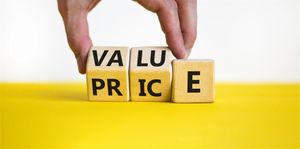Many smart Aussies who want to get ahead financially aren't sure if they should focus on paying off their debts before investing or if they can do both at the same time. The stock market and the promise of seeing your wealth grow are both very appealing, but the constant worry about your credit card debt or personal loan is just as strong. Then what is the best thing for you to do?
The answer is "it depends." But there isn't a single right answer. By the end of this, you'll have a much better idea of the path that fits your goals and finances the best.
The Big Debate: Should You Invest or Pay Off Your Debt?
Look at your money as a kind of balance act. One side of things is that the interest on your loan is actually taking money away from you. It's also possible that you have investments that are making you money. The goal is for your money to work for you, not against you.
A simple comparison of the possible return on your investments and the interest rate on your loan is what makes the decision possible. Paying off your debt should be your first priority if the interest on it is more than what you could expect to earn from an investment.
Not Every Debt is the Same
Let me break it down for you here. It's not the same thing to have different types of debt. Loans with 4% interest rates are not the same as credit cards with 20% interest rates.
High-Interest Debt
High-interest debt is a problem when it comes to money, like credit card or personal loan debt. The interest rates are like a leak in your financial bucket; it's hard to get ahead when your income is going down. If you are having a hard time with a lot of high-interest debt, looking into refinancing options could save you. Bad credit loans Australia are one way that people can combine their debt into a single, easier-to-handle payment. This can often lead to a lower total interest rate. Getting rid of this kind of debt should always be the first thing you do.
Low-Interest Debt
Low-interest debt, like a home or a HECS-HELP loan for students, is a whole different story. These often have interest rates that are lower than the average long-term return on the stock market. In this case, it might make more sense to start investing while still making your usual payments.
Why Compound Expansion is So Magical
This is a great place to start investing. Your money could earn you money if you spend it. After that, those returns start to earn money on their own. This snowball effect is one of the strongest in business. It is also known as compounding. If you start saving money early in life, it has more time to grow.
People who are ready to see their money work for them, high return investing can be very appealing. Even though the chance of getting more money back is appealing, it is important to remember that more danger usually comes with more money back. Before you start investing in more risky ways, make sure you do your study, know how much risk you are willing to take, and maybe even talk to a professional.
How to Find the Right Balance for You
So how do you figure out what's best for you? These are some important things to do:
- Build an Emergency Fund: Before you do anything else, make sure you have a good backup fund. This safety net of three to six months' worth of living costs is kept in an account that is easy to get to. If an unexpected cost comes up, this will keep you from taking on more debt.
- Deal with High-Interest Debt: As we've already talked about, get rid of that expensive debt right away. Most of the time, paying off a high-interest loan is a safer way to make money than investing.
- Think about your goals: Why are you saving money? When do you retire? The down payment on the house? Knowing your financial goals will help you choose the best way to reach your goals and make a plan for how to get there.
- Seek Professional Advice: It's not embarrassing to be unsure or stressed out; get help from a professional. Licensed financial advisers will look at your unique situation and make suggestions that are tailored to your needs. If property is part of the mix, property advocates can guide you through the purchase maze.
The Best of Both Worlds
A lot of people in Australia don't think the answer is "either/or." Most of the time, it's about finding a good middle ground. Once you have an emergency fund and your high-interest debt under control, you may decide to spend the rest of your extra money in a variety of different types of investments while paying off your debt faster.
This plan will help you pay off your long-term debt and grow your money at the same time. It's important to make a long-term plan that you can stick to because this is a race, not a sprint.
You Are in Charge of Your Money Future
It's up to each person to decide if they want to spend while they have debt. You can make a smart choice that will help your finances in the future if you know about the different types of debt, how much money you have, and how much you should spend.
What do you think? Have you had this happen to you? Leave a comment below to share what you know and what you've done.
Media Contact
Company Name: CCG
Contact Person: Jack Wilson
Email: Send Email
City: Melbourne
Country: Australia
Website: https://www.ccg.com.au/






